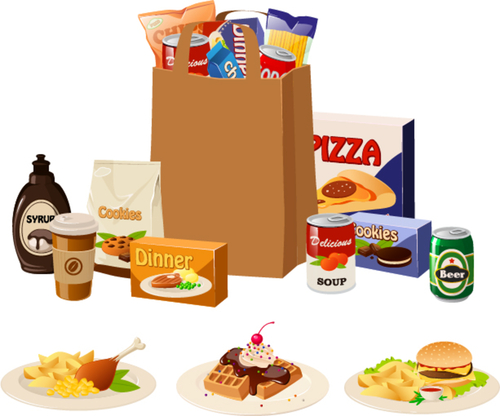The most common nutrition questions we get in our practice are whether or not a particular packaged product is “good” or not. The questions come in about supplements, protein powders, other superfood powders, and all kinds of chips, protein bars, cereals, pastas, and seemingly better peanut butter cups and gummy bears. When it comes to food questions, 99% revolve around wanting the convenience of ready-made and packaged foods. Many of the packages look pretty impressive. Grocery stores and food producers bend over backwards to create convenience, all-the-while convincing you of its nutritional value, healthiness, or goodness. Many of the catch words marketers are hoping will speak to your common sense in the healthy food arena, such as non-GMO, Organic, No Sugar Added, Gluten Free, Keto, Paleo, All Natural, Nothing Artificial, are usually present. But do all those words really make it good for you?
Some words are popular right now that confuse even the best label readers, such as ultra-pasteurized or grass-fed, cage-free, pasture-raised, and natural flavors. “Ultra” is a great example of a word or prefix that can be misleading. Most people think of ultra as an improvement, a finer, better feature. But in the food industry, with rare exception, ultra-filtered or ultra pasteurized simply means another step was taken to further refine and process that food. And what about cellulose powder? Sounds harmless enough, right? Did you know that it is refined wood pulp? When did man ever eat wood?
So here’s the thing. There is plenty of data now demonstrating that more than 75% of the food in our grocery store is ultra-processed food, while only 25% is real, whole, non-MAN-ufactured food. In other words, odds are against you when you are shopping that you will find the good 25%. Meanwhile, the other 75% are being highly marketed, end-capped, taste sampled, specially signed, and stunningly packaged with all the titillating sensory words and colors that attract and draw you to the 75%. And a lot of it looks really healthy.
The point here is to remind you, if it’s in a package, man put it in the package. If you pick it up in a drive-thru, it is ultra-processed. If it is not in the original state from which it comes out of nature (a whole fruit, vegetable, nut, meat from the bone), we should all be asking ourselves just how much had to be done to make this product. This is especially true of powders, flours, pressed bars, baked goods, dressings and sauces, chips, and other snack and convenience choices. Even if all of the ingredients are whole food, many are still heavily processed, void of fiber and precious nutrients. Aiming to swap these percentages in our favor rather than against us is a good goal. Seek to make 75% of your food whole from the store periphery and farmers’ markets. One challenge may be to find all of the packaged food in your house that has a Nutrition Facts and Ingredient label and put it on your kitchen counter. Then ask yourself how much of that makes up your daily diet.
Diets rich in ultra-processed foods cause an increased risk for cognitive decline, dementia, stroke, cancer, and all cause mortality. Consistently, data also shows that people in general today also suffer from significant nutritional deficiencies. Ultra-processed foods fail to provide adequate nutrition. Compared to the historical past, prior to the explosion of the processed food industry, people ate mostly local foods, and whole, real food. And during that time we did not experience the explosion of lifestyle disease and nutrient deficiencies we see today.
No doubt, this is a tough challenge. We all have busy lives, careers, and family responsibilities, and all of the stresses that are common to us all. Changing how we eat and what we eat takes time and effort. It is not easy, especially at first. New habits can nevertheless be developed that, once practiced, are also convenient and easy. If we reorganize our priorities, we might find that we are able to endure the challenges of life as well as pursue our dreams more easily than ever before.
Resources:
Mila McManus MD. Highway To Health: A Nutritional Roadmap.(2019)
https://www.medscape.com/viewarticle/994958 [Diet and the Brain: From Ultra processed Foods to the Farmers Market]
Joseph Mercola MD. Kids Intentionally Poisoned by Artificial School Lunches. (September 6, 2023)


